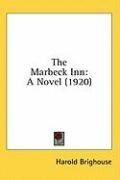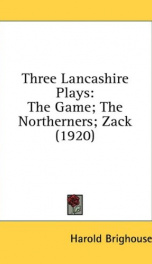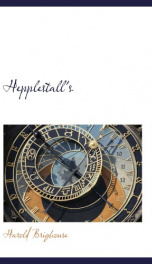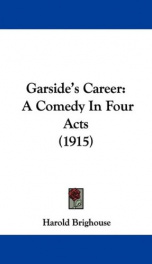the marbeck inn a novel

Purchase of this book includes free trial access to www.million-books.com where you can read more than a million books for free. This is an OCR edition with typos. Excerpt from book: CHAPTER III THE HELL-FIRE CLUB To a schoolboy of sixteen, love is an imbecile emotion, its victims harmless lunatics, and it is not to be supposed that Sam's interest in the affair of Madge and George was based on intimate understanding. His conspiratorial action came rather as a lark: behind, perhaps, was the recognition that adults did habitually make fools of themselves in this way, that his loyalty in such a case was to Madge who was of his generation, and that Anne in obstructing their marriage was outrunning the constable in her demands for self-sacrifice on his behalf. Larking, defined as enjoyable interference with other people for motives either benevolent or purely egotistic, was a weakness of Samuel Branstone, and the boy was father to the man. He did not agree with Anne that the marriage was inimical to his interests. True, George cleaned windows and balanced hardily at the top of swaying ladders, a precarious trade, but his own. Apparently it suited the Georgian temperament, and that funambulist would not wear a placard on his back proclaiming that he was brother-in-law to Branstone of the Classical Fifth. Branstone, who was going to rise in the world, would necessarily have poor relations, and it hardly mattered how poor. Indeed, the poorer they werethe more cheaply he could afterwards play providence to them, since their standards would be low and their expectations small. So it wasn't a nice, impulsive lark, but coldblooded and calculated, which is almost as objectionable in a lark as organization in Charity. It is prudent good intentions that pave the way to Hell. He saw that there was a difference between this and the elopements of that romantic literature with which he busied his relaxed hours: sometimes the lady, but always the lover, was ente... --This text refers to an alternate Paperback edition.
Info about the book
Author:
Series:
Unknown
ISBN:
1141944049
Rating:
4/5 (2)Your rating:
0/5
Languge:
English
Users who have this book
Users who want this book
What readers are saying
What do you think? Write your own comment on this book!
write a commentGenre
if you like the marbeck inn a novel try:
Other books by this author
Do you want to exchange books? It’s EASY!
Get registered and find other users who want to give their favourite books to good hands!





